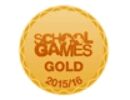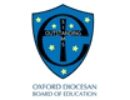Year 1 Resources
At Brill School, English, Maths and Core Skills are taught through focused daily lessons; usually in the morning. For other lessons we have in recent years moved away from narrow subject based teaching and have developed a curriculum that is imaginative, child focused and cross curricular.
Year 1’s thematic topic units for this year are:
| Term | Theme/topic | Main focus |
|---|---|---|
| Autumn | 1 My Family History | History |
| 2 What Was Life Like When Our Grandparents Were Children? | Geography | |
| Spring | 3 Who Were The Greatest Explorers? | Geography |
| 4 People And Their Communities | History | |
| Summer | 5 | Geography |
| 6 | History |
(Music and Modern Foreign Languages are taught once a week by our Subject Specialist Teachers)
|
|
Music Curriculum
|
Click on the topic units below for an overview document for the term’s work.
|
|
Autumn Term 2
|
|
|
Autumn Term 1
|
|
|
Spring Term 1
|
|
|
Spring Term 2
|
|
|
Summer Term 1
|
- Reading with your child often and discussing the story and the characters.
- Select texts from our Year 1 recommended book list to read with your child.
- Help your child become familiar with any key words or spellings which will be sent each week.
- Help your child to practise their times tables for wizard maths.
Our PE days are Wednesday and Monday (swimming).
Reading
Reading is taught in Guided Reading sessions. Each week your child will read with an adult in a small group with a particular focus to each session. As well as this your child will have a reading book to take home and bring to school each day and a library book to share with you at home. Practicing reading and sharing books at home builds confidence and really makes a difference.
There are two main skills for successful reading, a sound phonic knowledge and quick recall of every day irregular sight words (tricky words). Phonics will be taught on most days in differentiated groups so that your child will be able to apply phonic skills to decode unknown words. All children will also have a few high frequency sight words each week to practice either reading or spelling.
|
|
http://www.iboard.co.uk/iwb/Vehicles-Information-Book-Reading-Level-B-395
|
Maths
|
|
Times Tables
|
|
|
Shape
|
Literacy
ICT
|
|
Coding
|
|
|
Touch typing
|
|
|
General Resources
|
|
|
Curriculum- Year One
|







